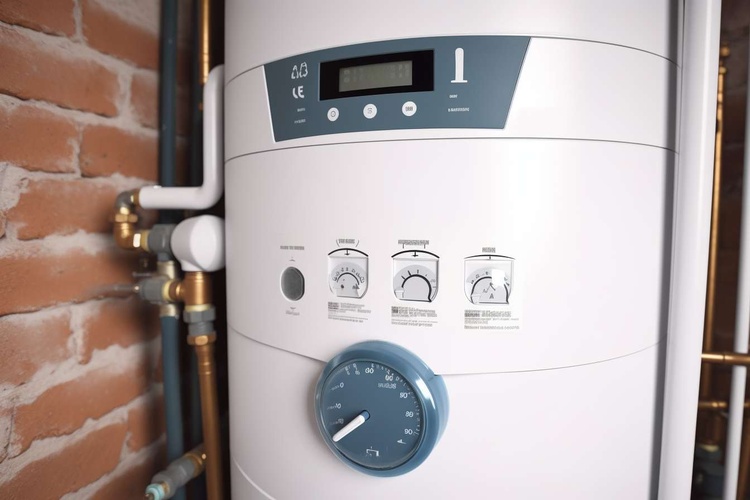The Homeowner’s Guide to Hassle-Free Boiler Replacement
Replacing a boiler can be a daunting task for any homeowner, involving significant decisions about cost, efficiency, and installation. This comprehensive guide walks you through the essential steps of boiler replacement, helping you avoid common pitfalls while ensuring you select the right system for your home's specific needs and your budget constraints.

When the time comes to replace your home’s boiler, the process can seem overwhelming. From selecting the right type and size to finding a qualified installer, there are numerous decisions to make that will impact your home’s comfort and energy bills for years to come. This guide aims to simplify the boiler replacement process, helping you navigate each step with confidence while avoiding costly mistakes.
Choosing the Right Boiler for Your Home and Budget
Selecting an appropriate boiler involves more than just finding the most affordable option. The right choice depends on several factors specific to your property. Combi (combination) boilers provide hot water on demand without a cylinder, making them ideal for smaller homes with limited space. System boilers work with a hot water cylinder and are better suited for properties with multiple bathrooms. Conventional boilers include both a cylinder and a water tank, offering high flow rates for larger households.
Energy efficiency ratings are crucial when selecting a new boiler. Modern A-rated condensing boilers typically operate at over 90% efficiency, compared to older models that may run at just 60-70%. While higher-rated models may cost more initially, they can save hundreds of pounds annually on energy bills, often paying for themselves over time.
Size matters significantly when it comes to boiler selection. An undersized unit will struggle to heat your home adequately, while an oversized one will waste energy and money. Professional heating engineers can perform heat loss calculations to determine the appropriate output rating based on your home’s size, insulation levels, and hot water requirements.
Common Mistakes Homeowners Make and How to Avoid Them
One frequent error is focusing solely on purchase price rather than lifetime costs. A cheaper boiler might save money upfront but could cost significantly more in repairs, parts, and energy consumption over its lifespan. Consider warranty length, manufacturer reputation, and expected operational costs when evaluating total ownership expenses.
Many homeowners neglect to obtain multiple quotes, potentially missing out on better pricing or more suitable systems. Aim to receive at least three detailed estimates from reputable installers. Each quote should break down costs for the boiler unit, additional components, labor, and any necessary modifications to existing systems.
Overlooking proper system flushing before installation is another common mistake. New boilers connected to old, contaminated pipework can develop problems quickly. Professional power flushing removes sludge and debris from your heating system, extending your new boiler’s lifespan and maintaining efficiency.
Rushing the decision process often leads to regrettable choices. Take time to research options, understand different boiler types, and evaluate installers. Remember that a boiler is typically a 10-15 year investment, making thorough consideration worthwhile.
Understanding Boiler Installation Requirements
Proper installation is just as important as selecting the right boiler. Only Gas Safe registered engineers should install gas boilers, while oil boilers require OFTEC-certified technicians. Always verify these credentials before proceeding with any installation work.
Location requirements vary by boiler type. Combi boilers need adequate water pressure to function properly, while system and conventional boilers require appropriate space for cylinders and/or tanks. Flue positioning must comply with building regulations, typically requiring external wall placement with specific clearances from windows, doors, and boundaries.
Building regulations compliance is non-negotiable when replacing a boiler. Your installer should handle necessary notifications to local authorities and provide a Building Regulations Compliance Certificate upon completion. This documentation is important for home sales and insurance purposes.
Boiler Replacement Costs and Options
The financial investment for a new boiler system varies significantly based on several factors. Entry-level combi boilers typically start around £1,500-£2,000 installed, while premium models from manufacturers like Worcester Bosch or Vaillant can exceed £3,000. System and conventional boilers generally cost more due to additional components.
| Boiler Type | Typical Price Range (Including Installation) | Suitable For |
|---|---|---|
| Combi Boiler | £1,500 - £3,500 | Small to medium homes with 1-2 bathrooms |
| System Boiler | £1,800 - £3,800 | Medium to large homes with multiple bathrooms |
| Conventional Boiler | £1,700 - £3,600 | Larger homes with existing tanks/cylinders |
| Biomass Boiler | £5,000 - £15,000 | Eco-conscious homeowners with storage space |
| Air Source Heat Pump | £8,000 - £18,000 | Well-insulated homes seeking renewable options |
Prices, rates, or cost estimates mentioned in this article are based on the latest available information but may change over time. Independent research is advised before making financial decisions.
Additional costs may include system upgrades like magnetic filters (£100-£200), chemical flushes (£300-£500), or smart thermostats (£150-£300). Government grants and incentives may be available to offset costs, particularly for energy-efficient or renewable heating systems.
Tips to Keep Your New Boiler Running Efficiently for Years
Annual servicing is essential for maintaining warranty validity and ensuring safe, efficient operation. Most manufacturers require yearly professional maintenance to honor guarantee terms. These services typically cost £80-£120 but can prevent costly breakdowns and extend equipment life.
Installing a magnetic filter can significantly improve system longevity by capturing metallic debris before it damages your boiler. Similarly, water treatment with inhibitors helps prevent corrosion and limescale buildup within the system, particularly important in hard water areas.
Smart controls offer both convenience and efficiency benefits. Programmable thermostats and zoning systems can reduce energy consumption by 10-15% by heating only occupied areas at appropriate times. Many modern systems offer smartphone control, allowing remote adjustments to heating schedules.
Maintain appropriate system pressure between 1-1.5 bar (when cold) and bleed radiators annually to remove trapped air. These simple maintenance tasks can prevent efficiency losses and ensure even heating throughout your home.
Planning for a Smooth Boiler Replacement Process
Timing your replacement strategically can save money and minimize disruption. Summer installations often come with discounted rates as demand is lower, and you’ll avoid emergency replacement during cold weather when you need heating most.
Prepare your home by clearing access routes to the installation area and removing valuable or fragile items nearby. Most installations take 1-2 days, though complex system changes may require longer. Having a temporary heating solution available is advisable, especially during winter replacements.
Documentation matters for warranty protection and future home sales. Keep all installation certificates, warranty information, and service records in a safe place. Register your warranty promptly, as many manufacturers require registration within 30 days of installation.
A well-planned boiler replacement provides comfort, efficiency, and peace of mind for years to come. By understanding your options, avoiding common pitfalls, and maintaining your new system properly, you can enjoy reliable heating and hot water while minimizing long-term costs.




